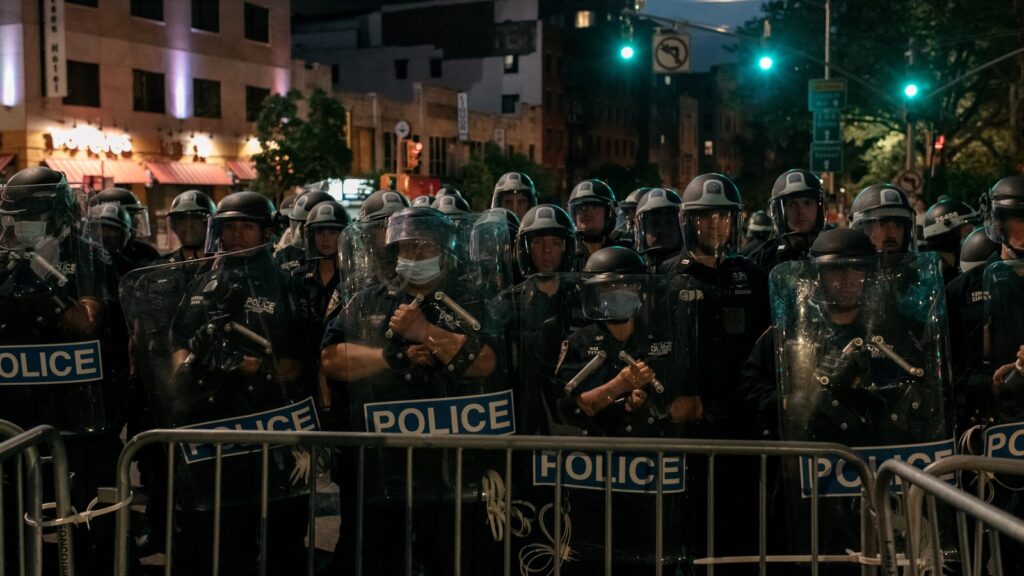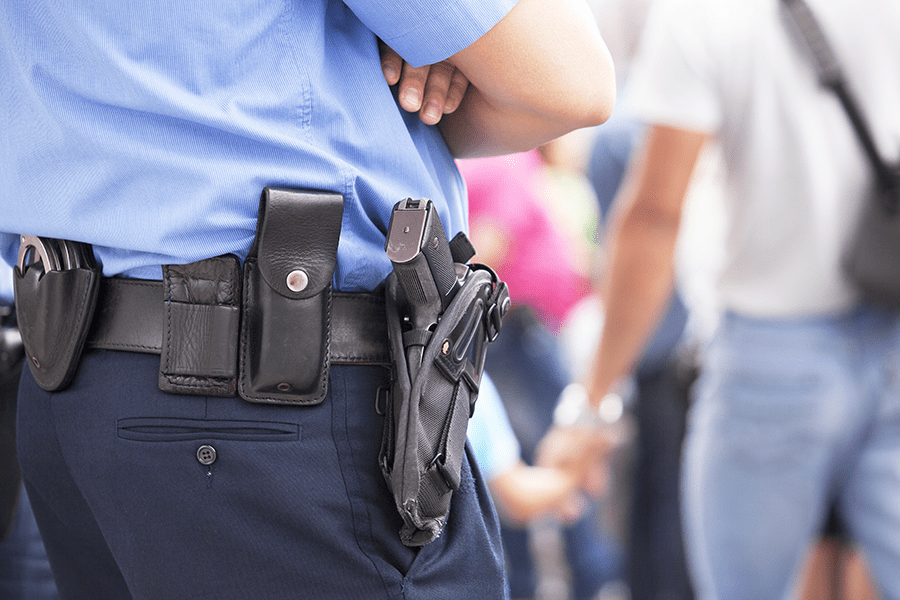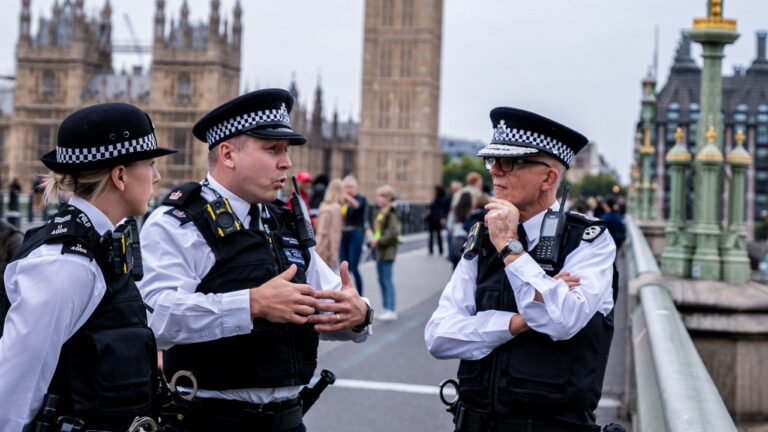“PC” in police means “Police Constable.” A Police Constable is an important part of the police team that keeps our community safe. They have specific jobs like patrolling areas, stopping and solving crimes, and making sure everyone is secure.
To become a Police Constable, people need special training and qualifications. They work hard to prevent and solve crimes, making our neighborhoods safer. Knowing about Police Constables helps us understand how they protect and serve, making our community a better place.
What are the primary duties of a Police Constable in maintaining law and order?

Patrolling
Police Constables regularly move around neighborhoods, either on foot or in vehicles, keeping a close eye on what’s happening. This helps deter potential crimes and allows them to respond quickly if needed.
Preventing and Stopping Crimes
When a Police Constable notices something wrong or illegal, they take immediate action to stop it. This could involve intervening in a dispute, preventing theft, or apprehending someone who is breaking the law.
Investigating Crimes
If a crime occurs, Police Constables investigate to understand what happened. They collect evidence, interview witnesses, and work to identify the person responsible for the crime.
Maintaining Public Safety
Police Constables are there to help people in times of trouble. They respond to emergencies, accidents, or any situation where someone needs assistance. Ensuring public safety is a top priority.
Enforcing Rules and Regulations
Police Constables make sure that everyone follows the rules and regulations set by the community or law. This could include traffic rules, local ordinances, or any guidelines designed to maintain order.
Assisting the Community
Police Constables serve as a resource for the community. They may provide information, answer questions, or offer guidance on safety measures. Building positive relationships with the community is essential for effective policing.
Community Engagement
Engaging with the community is vital. Police Constables participate in community events, meetings, or initiatives to understand the concerns of residents and to promote a sense of security and trust.
Why are Police Constables vital for community safety?
Police Constables are crucial for community safety for several reasons
Crime Prevention
Police Constables actively patrol neighborhoods, deterring criminal activities and preventing potential crimes. Their visible presence contributes to a safer environment.
Emergency Response
In times of emergencies or accidents, Police Constables are the first responders. Their quick and trained response helps mitigate risks and ensures a timely intervention.
Law Enforcement
Police Constables enforce laws and regulations, maintaining order and promoting a sense of security. This contributes to a stable and lawful community environment.
Investigation and Resolution
When crimes occur, Police Constables investigate to identify and apprehend the individuals responsible. This process helps bring resolution to incidents and ensures justice is served.
Community Relations
Building positive relationships with the community is a key aspect of a Police Constable’s role. This fosters trust and cooperation, encouraging residents to collaborate with law enforcement for the greater good.
Assistance and Support
Police Constables provide assistance and support to community members in various situations, such as accidents, disputes, or emergencies. Their presence offers reassurance and aid during challenging times.
Public Safety Education
Police Constables often engage in educational initiatives within the community, providing information on safety measures, crime prevention, and emergency preparedness. This helps empower residents to contribute to their own safety.
Maintaining Social Harmony
By addressing conflicts, resolving disputes, and ensuring adherence to rules, Police Constables contribute to the overall harmony within a community. This fosters a sense of well-being and unity among residents.
What basic training and qualifications are required to become a Police Constable?
Becoming a Police Constable involves specific training and qualifications. Here are the basic requirements:
Educational Background
While a high school diploma or equivalent is the minimum requirement, some police departments may prefer candidates with higher education, such as an associate’s or bachelor’s degree. Degrees in criminal justice or related fields can be advantageous.
Age Requirement
Police Constable candidates typically need to meet a specific age requirement, which is often set between 18 and 21 years old. This ensures that candidates have reached a mature age before taking on the responsibilities of a law enforcement officer.
Physical Fitness
Physical fitness is a crucial aspect of law enforcement. Candidates are required to pass a physical fitness test, which may include tasks like running, push-ups, and sit-ups. Maintaining good physical health is essential for the demanding nature of the job.
Background Check
A comprehensive background check is conducted to assess a candidate’s suitability for a career in law enforcement. This includes reviewing criminal history, financial stability, and other relevant aspects of the candidate’s background.
Citizenship or Legal Residency
In many jurisdictions, candidates must be citizens or legal residents of the country where they are applying to work as a Police Constable. This ensures a legal right to work and serve in a law enforcement capacity.
Driver’s Licens
A valid driver’s license is often a requirement, as Police Constables may need to operate police vehicles during patrols or emergency response situations.
Police Academy Training
Successful candidates undergo training at a police academy, which covers a wide range of topics essential for law enforcement. This includes criminal law, ethics, community policing, emergency response, and firearms training.
Communication Skills
Effective communication skills are vital for Police Constables. They need to interact with the community, communicate clearly with colleagues, and write reports detailing incidents or investigations.
Problem-Solving Abilities
The ability to think critically and solve problems is crucial in law enforcement. Police Constables often encounter complex situations that require quick decision-making and problem-solving skills.
Emotional Resilience
Law enforcement can be emotionally challenging. Police Constables need to develop emotional resilience to cope with the stress, trauma, and difficult situations they may encounter while performing their duties.
What Challenges Do Police Constables Encounter in Their Daily Duties?

Police Constables face a multitude of challenges in their day-to-day responsibilities as guardians of law and order.
Risk and Danger
Police Constables often find themselves in high-risk situations, dealing with potentially dangerous individuals or criminal activities, putting their own safety on the line.
Emotional Stress
Dealing with distressing incidents and witnessing the aftermath of crimes can take an emotional toll. Police Constables must navigate the emotional stress associated with their duties.
Community Relations
Establishing and maintaining positive relations with the community can be challenging, especially in the face of public scrutiny and evolving societal expectations.
Legal and Ethical Dilemmas
Negotiating complex legal and ethical dilemmas is a constant challenge. Police Constables must make quick decisions while ensuring their actions align with legal standards and ethical considerations.
Workload and Shifts
The demanding nature of law enforcement often leads to irregular working hours, long shifts, and high workloads. Striking a balance between personal life and duty becomes an ongoing challenge.
Limited Resources
Police departments may face constraints in terms of resources, including manpower and equipment. This limitation can pose challenges in effectively addressing and preventing criminal activities.
Public Perception
Managing public perception is a persistent challenge. Negative portrayals in the media and public opinion can impact the morale of Police Constables and their ability to perform their duties effectively.
Adapting to Technological Advances
The rapid evolution of technology requires Police Constables to continuously adapt. Staying updated with the latest tools and techniques is essential for effective policing in the modern age.
Critical Decision-Making
Police Constables are frequently required to make critical decisions in rapidly evolving situations. The pressure to make the right choices can be intense and adds to the challenges they face.
Community Expectations
Meeting the diverse expectations of the community, which may vary across different demographics, adds an additional layer of complexity to the role of Police Constables.
FAQ
What is the full meaning of PC in law?
In law, “PC” stands for “Police Constable,” referring to an officer responsible for maintaining law and order in the community.
What is the meaning of PC case?
A “PC case” commonly refers to a personal computer case, housing the components of a computer system.
What is the name suffix PC?
The name suffix “PC” usually stands for “Professional Corporation,” indicating a business structure for certain licensed professionals.
How do you name your PC?
Naming a PC is a personal choice; individuals often choose names based on preferences, themes, or even humor to personalize their computer.
Is suffix a first name?
No, a suffix is not a first name; it is a linguistic element added to the end of a word to modify its meaning or convey additional information.
Is PC an initialism?
Yes, “PC” is an initialism, standing for “Personal Computer” when referring to technology.
Is a PC a noun?
Yes, “PC” is a noun. It can represent a “Police Constable” in law enforcement or a “Personal Computer” in technology.
Why is it called PC?
“PC” stands for “Personal Computer” because it is designed for individual use, distinguishing it from larger mainframe computers.
What is the plural for PC?
The plural for “PC” is “PCs,” representing multiple Personal Computers or Police Constables, depending on the context.
Final words
“PC” in the police world stands for “Police Constable.” These officers are essential for community safety, working to prevent crimes, respond to emergencies, and uphold order. Through specialized training, they become skilled in handling diverse situations, contributing to the overall welfare of society.
Recognizing and valuing their role is key to fostering a secure community. The next time you encounter a PC, remember they are committed to ensuring our neighborhoods are safe havens for everyone

